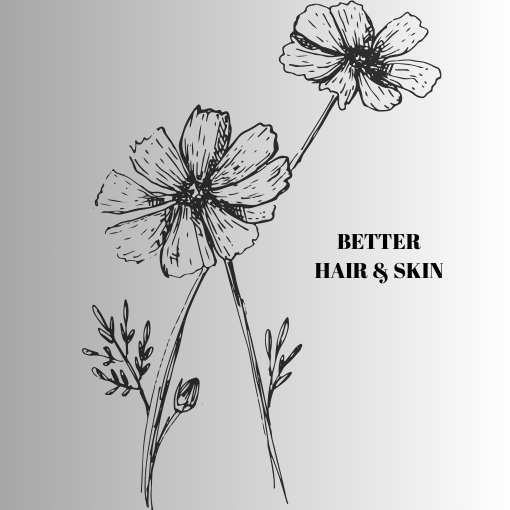Effective Solutions for Hair Fall: A Comprehensive Guide
Hair fall is a common problem that affects people of all ages and genders. Losing a few strands of hair daily is normal, but excessive hair fall can be concerning and impact one’s confidence. If you’re looking for effective solutions to manage hair fall, this guide offers natural remedies, medical treatments, and lifestyle adjustments to help you achieve healthier hair.
Understanding the Causes of Hair Fall
Before addressing hair fall, it’s essential to identify its root causes. Common factors include:
- Genetics: Hereditary hair loss, also known as androgenetic alopecia, is one of the most prevalent causes of hair fall.
- Hormonal Imbalances: Conditions like thyroid disorders, PCOS, and menopause can disrupt hormone levels, leading to hair loss.
- Nutritional Deficiencies: Lack of essential nutrients like iron, biotin, and protein can weaken hair.
- Stress: Chronic stress triggers telogen effluvium, a condition where hair prematurely enters the shedding phase.
- Improper Hair Care: Overuse of heat styling tools, harsh chemical treatments, and tight hairstyles can damage hair.
- Medical Conditions: Scalp infections, autoimmune diseases, and certain medications can contribute to hair fall.
Natural Remedies for Hair Fall
1. Coconut Oil Massage
Coconut oil is a time-tested remedy for hair fall. It nourishes the scalp, strengthens hair roots, and promotes hair growth.
How to Use:
- Warm a small amount of coconut oil.
- Massage it into your scalp using circular motions.
- Leave it on for at least an hour or overnight before washing with a mild shampoo.
2. Aloe Vera Gel
Aloe vera has soothing properties that reduce scalp inflammation and dandruff, both of which can contribute to hair fall.
How to Use:
- Extract fresh aloe vera gel from the leaf.
- Apply it to your scalp and leave it on for 30 minutes.
- Rinse with lukewarm water.
3. Onion Juice
Rich in sulfur, onion juice improves blood circulation to hair follicles and boosts hair regrowth.
How to Use:
- Blend an onion to extract its juice.
- Apply the juice to your scalp and leave it for 20 minutes.
- Wash off with a gentle shampoo.
4. Fenugreek Seeds (Methi)
Fenugreek seeds are packed with proteins and nicotinic acid, which strengthen hair and prevent breakage.
How to Use:
- Soak 2 tablespoons of fenugreek seeds overnight.
- Grind them into a paste and apply to your scalp.
- Rinse after 30 minutes.
5. Green Tea Rinse
Green tea contains antioxidants that stimulate hair follicles and enhance hair growth.
How to Use:
- Brew a cup of green tea and let it cool.
- Use it as a final rinse after shampooing.
Medical Treatments for Hair Fall
1. Minoxidil
Minoxidil is a topical solution approved by dermatologists to treat hair fall. It’s available over the counter and stimulates hair growth by improving blood flow to the scalp.
Usage:
Apply Minoxidil directly to the scalp as per the prescribed instructions. Regular use is necessary for visible results.
2. Platelet-Rich Plasma (PRP) Therapy
PRP therapy involves injecting platelets extracted from your blood into the scalp. This promotes healing and hair regeneration.
3. Hair Transplant Surgery
For severe cases of hair loss, hair transplant surgery offers a permanent solution. Hair follicles are extracted from one area of the scalp and implanted in bald areas.
4. Medications
Prescription drugs like Finasteride can help reduce hair fall by inhibiting the hormone DHT, which is linked to hair loss.
Lifestyle Changes to Prevent Hair Fall
- Balanced Diet:
Incorporate foods rich in iron, zinc, biotin, omega-3 fatty acids, and protein. Examples include leafy greens, nuts, eggs, fish, and beans. - Stay Hydrated:
Drink at least 8 glasses of water daily to keep your scalp hydrated and healthy. - Reduce Stress:
Practice stress-management techniques such as yoga, meditation, or deep breathing exercises. - Gentle Hair Care:
- Use a mild, sulfate-free shampoo.
- Avoid excessive heat styling and harsh chemical treatments.
- Dry hair gently with a soft towel instead of rubbing vigorously.
- Regular Exercise:
Physical activity improves blood circulation, including to the scalp, which supports healthy hair growth.
When to See a Doctor
If hair fall persists despite trying remedies, consult a dermatologist. They can diagnose underlying conditions and recommend tailored treatments.
Conclusion
Hair fall can be distressing, but with the right combination of natural remedies, medical treatments, and lifestyle changes, it’s possible to restore hair health and confidence. Consistency is key, and results may take time. Take proactive steps today to embrace a future with stronger, healthier hair!
